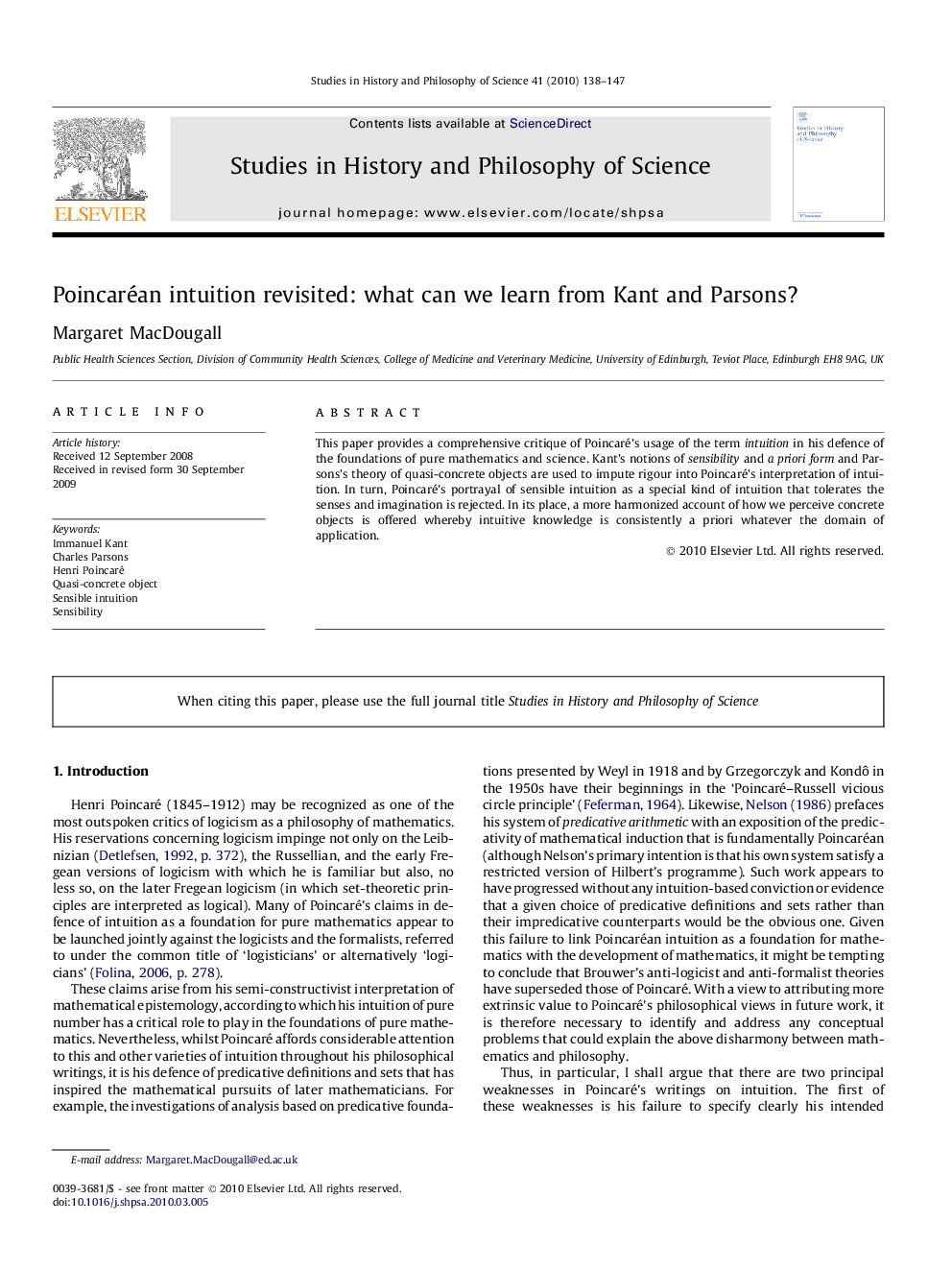| Article ID | Journal | Published Year | Pages | File Type |
|---|---|---|---|---|
| 1160590 | Studies in History and Philosophy of Science Part A | 2010 | 10 Pages |
Abstract
This paper provides a comprehensive critique of Poincaré’s usage of the term intuition in his defence of the foundations of pure mathematics and science. Kant’s notions of sensibility and a priori form and Parsons’s theory of quasi-concrete objects are used to impute rigour into Poincaré’s interpretation of intuition. In turn, Poincaré’s portrayal of sensible intuition as a special kind of intuition that tolerates the senses and imagination is rejected. In its place, a more harmonized account of how we perceive concrete objects is offered whereby intuitive knowledge is consistently a priori whatever the domain of application.
Keywords
Related Topics
Social Sciences and Humanities
Arts and Humanities
History
Authors
Margaret MacDougall,
